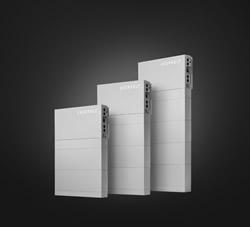Cenex and John Lewis Partnership team up to discuss challenges on low carbon transportation
At a recent conference held at the Sir Bernard Miller Centre in Cookham, Berkshire, Cenex, the UK's first national Centre of Excellence for low carbon and fuel cell technologies, and The John Lewis Partnership (JLP) laid down an Eco Van and Eco Lorry Challenge to the UK
At a recent conference held at the Sir Bernard Miller Centre in Cookham, Berkshire, Cenex, the UK's first national Centre of Excellence for low carbon and fuel cell technologies, and The John Lewis Partnership (JLP) laid down an Eco Van and Eco Lorry Challenge to the UK commercial vehicle supply chain. The one-day conference, to launch the challenge, brought together leading players in the commercial vehicle and automotive technology industries to share their wealth of knowledge on low carbon transportation.
The challenge to technology providers is to bring forward low carbon vehicles for the John Lewis Shops and Waitrose supermarkets to put into real fleet usage over the next two to three years. This will enable both the JLP and other fleet operators to better understand the carbon and lifecycle cost-savings potential of new and emerging low carbon vehicle technologies.
Independent and objective data on the performance of the new technology will be assessed against the current operating requirements of the JLP. Importantly, the data collected during the trial periods will help specify the next generation of vehicles to be purchased for the JLP and Waitrose, and the winners of the 'John Lewis eco van and eco lorry challenges will benefit from the future vehicle purchasing programmes.
The JLP operates a large fleet of commercial vehicles that make a sizeable contribution to the carbon footprint of the Group, covering around 43 million miles per year. The fleet comprises mostly of vans, rigid trucks, articulated trucks and refrigerated trailers, these vehicles are essential to JLP operations, keeping stores restocked with goods and delivering directly to customers. In investigating how best to cut transport carbon, the JLP is looking for deeper carbon cuts than current technology allows, and wants to send a clear signal to the commercial vehicle industry that it is ready to trial and adopt new low carbon vehicles. The JLP recognises that it should try to use its purchasing power and leadership position to help transform the market for low carbon vehicles.
The John Lewis Partnership will be supported in the challenge by Cenex. Cenex's role in the challenge will be to work with the technology providers to formulate propositions for submission to the Challenges and to oversee independent testing of the technologies employed.
The Challenge aims to provide innovative solutions in four vehicle categories:
•3.5 tonne refrigerated van
•7.5 tonne vehicle
•38 tonne trailer
•Semi trailer refrigeration unit
The Challenge is open to the trial of the full range of available low carbon transport alternatives, from electric and hybrid-electric vehicles to hydrogen and fuel cells. It is also interested to trial high bio-content fuels from renewable sources, such as bio-methane from waste. With this "technology-neutral" approach, Cenex and JLP have developed a target specification that aims to reduce JLP's CO2 footprint by at least 20%; benchmarked against current vehicle performance and ideally delivering a 30% plus reduction.
Featured Product

